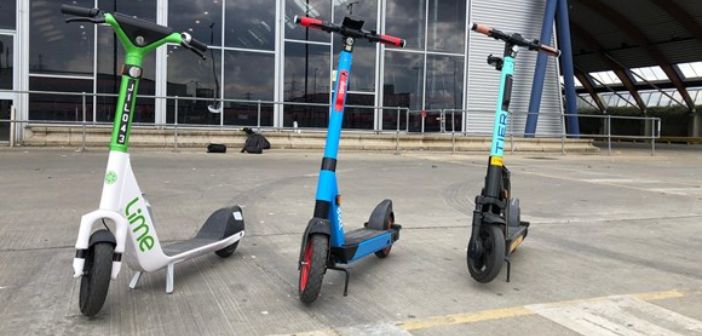London’s e-scooter operators Tier, Lime and Dott are working with University College London’s (UCL’s) specialist Person-Environment-Activity Research Laboratory (PEARL) to develop a ‘universal sound’ for rental e-scooters to alert pedestrians and other roads users.
Starting in February, all three operators will build on existing work to create the sound, in an approach which has been endorsed by Transport for London. The companies also have a joint goal of trialling a universal sound that could help improve safety across the entire e-scooter industry. The sound will be designed to help road users and particularly people with sight loss to identify a rental e-scooter regardless of its operator or make.
Research is expected to produce a sound which can be tested by operators in London this year, attaining an industry standard and ultimately scaling up to other cities in the UK and beyond.
The joint initiative is an industry first and follows engagement with disability experts and access consultants, including Transport for All, Thomas Pocklington Trust and Royal National Institute of Blind people.
According to the project, the sound will take into account the needs of individuals including those with sight loss, hearing loss and neurodiverse conditions. It will be ethically tested at the PEARL research facility, which can create different city environments, before testing on the street, to ensure it works for individuals in real-world settings.
Professor Nick Tyler, director, UCL PEARL, said: “This is an exciting project to work on to ensure that people with a range of different capabilities can know when an e-scooter is nearby and how it is moving, enabling them to comfortably and safely move around the urban environment.
“Through studying how the human hearing system has evolved, we can create sounds for e-scooters that are detectable without adding more noise to the environment. We plan to test a range of combinations of sounds and environments at UCL PEARL with people who are less likely to detect e-scooters nearby, so that we create a sound that works for all.
“It is a huge scientific challenge, but one that will enable everyone to feel comfortable with this new form of micromobility that is quickly growing in popularity.”





